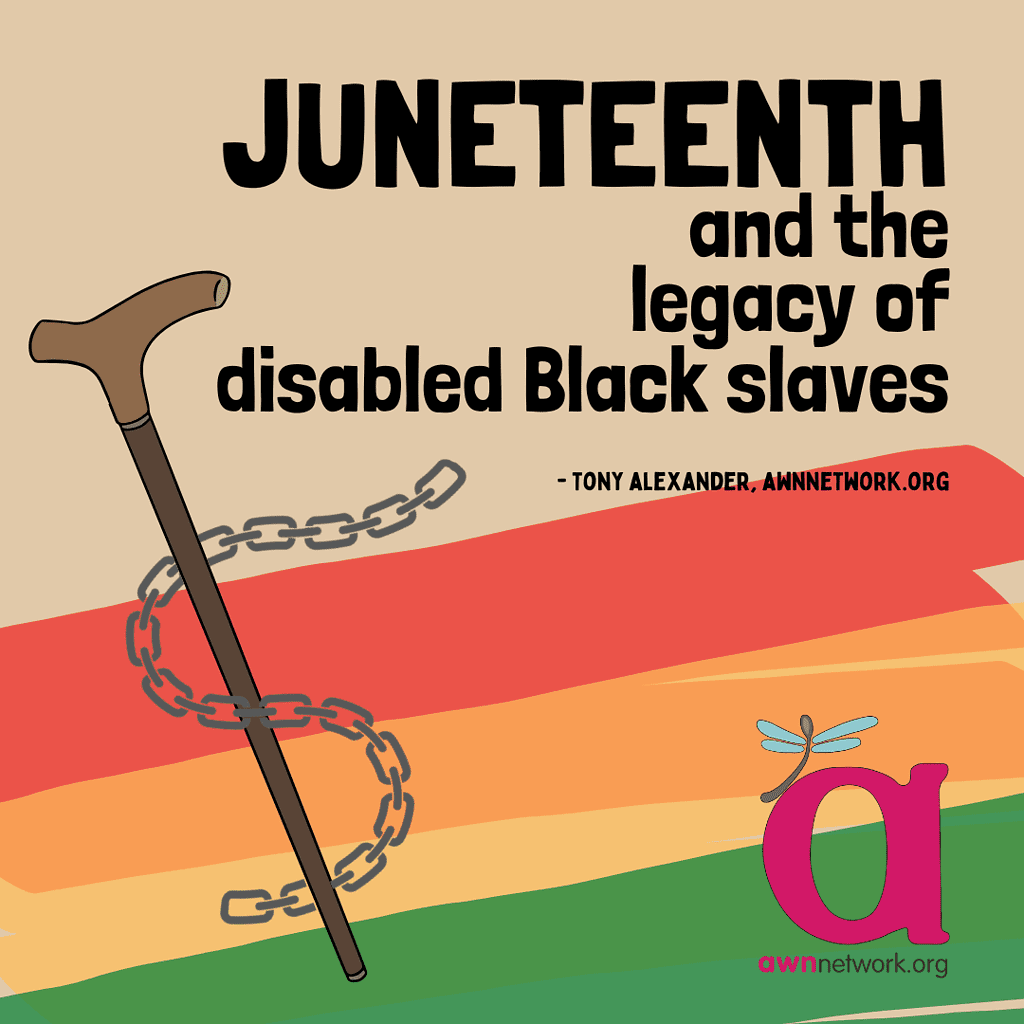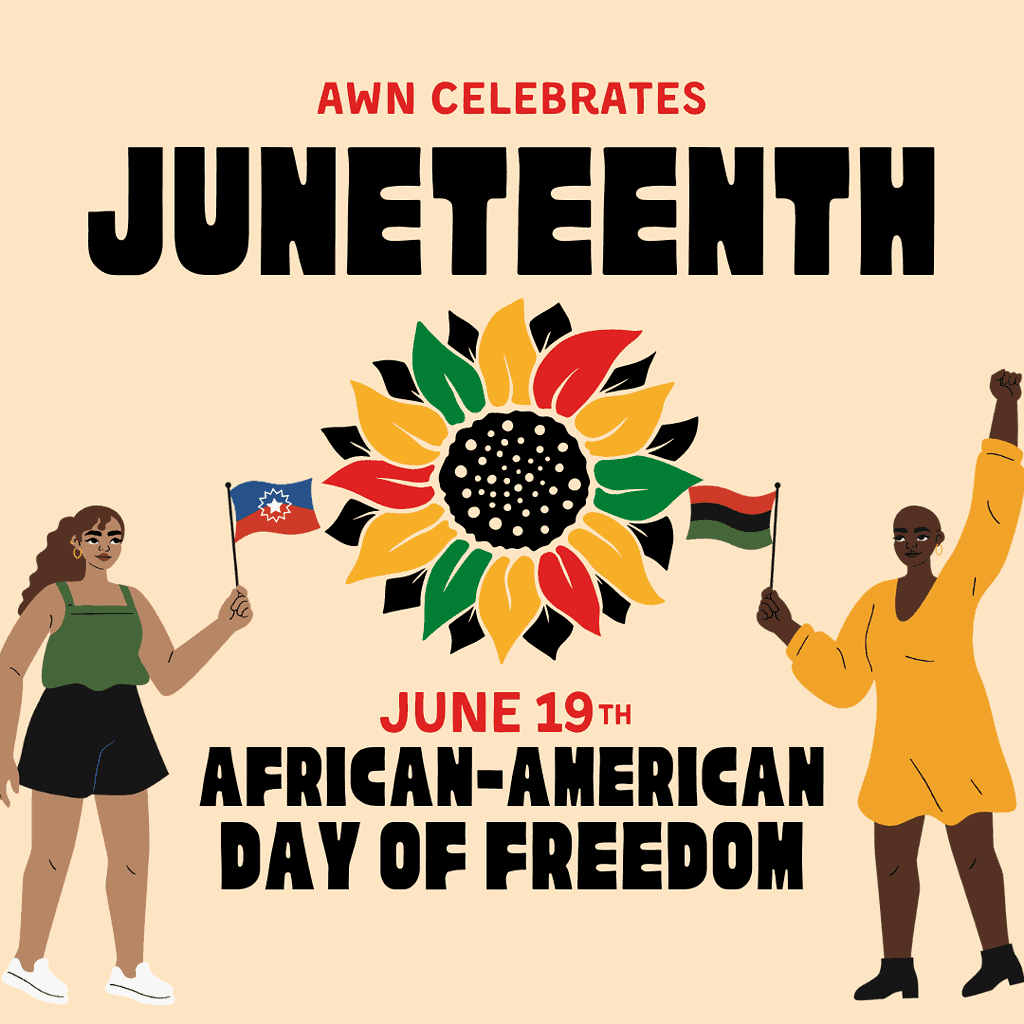
Juneteenth and the legacy of disabled Black slaves
Juneteenth recognizes the day when enslaved African-American people in Texas were freed two years after the Emancipation Proclamation. Yet history has largely forgotten how many enslaved disabled people also were not liberated by the Emancipation Proclamation.
Blog post by Tony Alexander, Policy Manager:
June 19th (a.k.a. “Emancipation Day,” “Freedom Day,” or, more commonly called, “Juneteenth”) commemorates the emancipation of enslaved African-Americans. On January 1, 1863, President Abraham Lincoln issued the Emancipation Proclamation, which freed all but a portion of the nation’s four million enslaved African Americans residing in Confederate-controlled territories. Areas already under Union control were exempt, along with several other states, including: Delaware, Kentucky, Maryland, and Missouri, thereby requiring action at the state level in those states to eradicate slavery. For example, Maryland subsequently ratified a new constitution that provided for the end to slavery within the state. Of those enslaved people who were granted emancipation by President Lincoln’s January 1, 1863 edict, many were not immediately made aware that they were free and thus remained enslaved well beyond January 1, 1863. With limited technology and resources—along with uncooperative enslavers and Confederate sympathizers— news traveled slowly to enslaved people. On June 19, 1865, 2,000 Union soldiers arrived in Texas, the westernmost Confederate state, to announce that the state’s approximately 250,000 enslaved people were freed two years prior by the Emancipation Proclamation.
Juneteenth has become more popularly recognized across the nation and among different races over the last few years (which has, unfortunately, also led to corporate blackwashing or co-opting). Last year, Juneteenth became a federally recognized holiday. However, I can tell you as a Black, born-and-raised Southerner, that the holiday has long been taught to many of us Black Southerners by our living ancestors as a teaching moment, a moment of reflection, and a time to celebrate Black American culture. It is not uncommon for African American-led organizations to host parades or large gatherings on this day, and for people to attend small barbecues or cookouts with their loved ones, at which traditional foods are often prepared and served.

Without taking away from the celebratory aspect of this holiday, I implore you to reconsider freedom, what it means, and for whom it was meant. We know that certain enslaved people were exempted from the Emancipation Proclamation simply by virtue of where they resided. However, many enslaved, disabled people also were not liberated by the Emancipation Proclamation. In 2008, history professor Dr. Jim Downs (who’s currently at Gettysburg College, but taught at Connecticut College at the time of its publication) wrote “The Continuation of Slavery: The Experience of Disabled Slaves during Emancipation,” which I consider to be a must-read article upon to reflect for Juneteenth. In the Journal article, Dr. Downs points out that much of the discussion about slavery and the subsequent period of emancipation is concentrated on the lives of able-bodied people and their labor. Finding firsthand accounts of disabled, enslaved African Americans proves to be a daunting task, but it is evident that many were unable to leave forced labor camps after the Civil War ended and remained within the institution of slavery (or its rebranding, sharecropping). Left on the areas on which they were tortured, bound by the people who tortured them, disabled people remained in a cycle of poverty. In other words, they had limited means of earning wages and, in turn, limited opportunities for leaving the rural South in search of a better life.
Thus, the history of emancipation has been, in essence, a history of able-bodied freed slaves, as disabled slaves, along with some children and elderly people, often could not escape the plantation South.
–Dr. Jim Downs
The legacy of slavery and the denial of freedom for so many disabled, enslaved African Americans plays out today. In just over a month, the United States commemorates another anniversary, the 30th anniversary of the passage of the Americans with Disabilities Act. Disabled people within the United States continue to fight for justice, however, and for complete accessibility, radical inclusion within our structural and societal frameworks, and—ultimately—for freedom.

